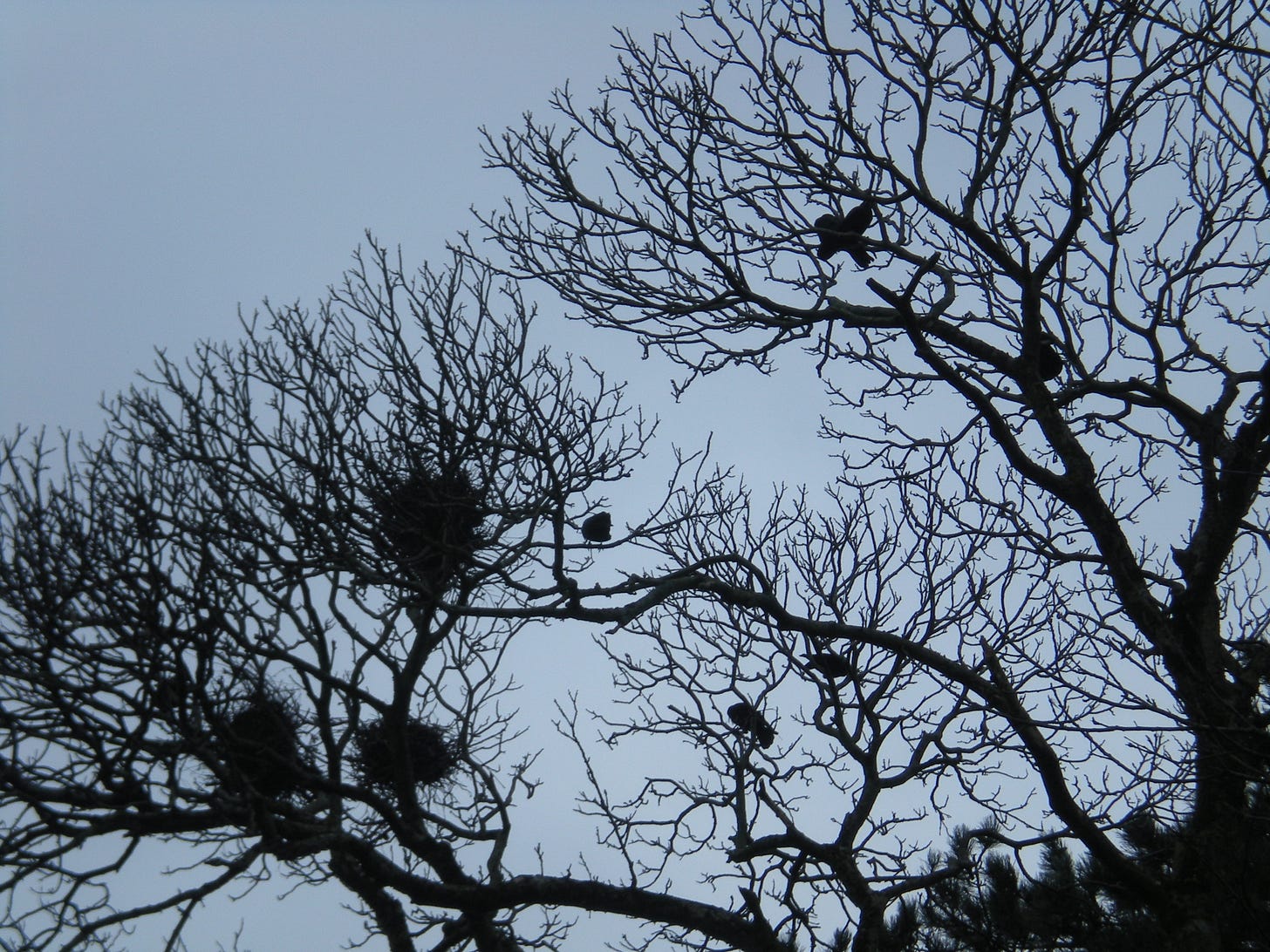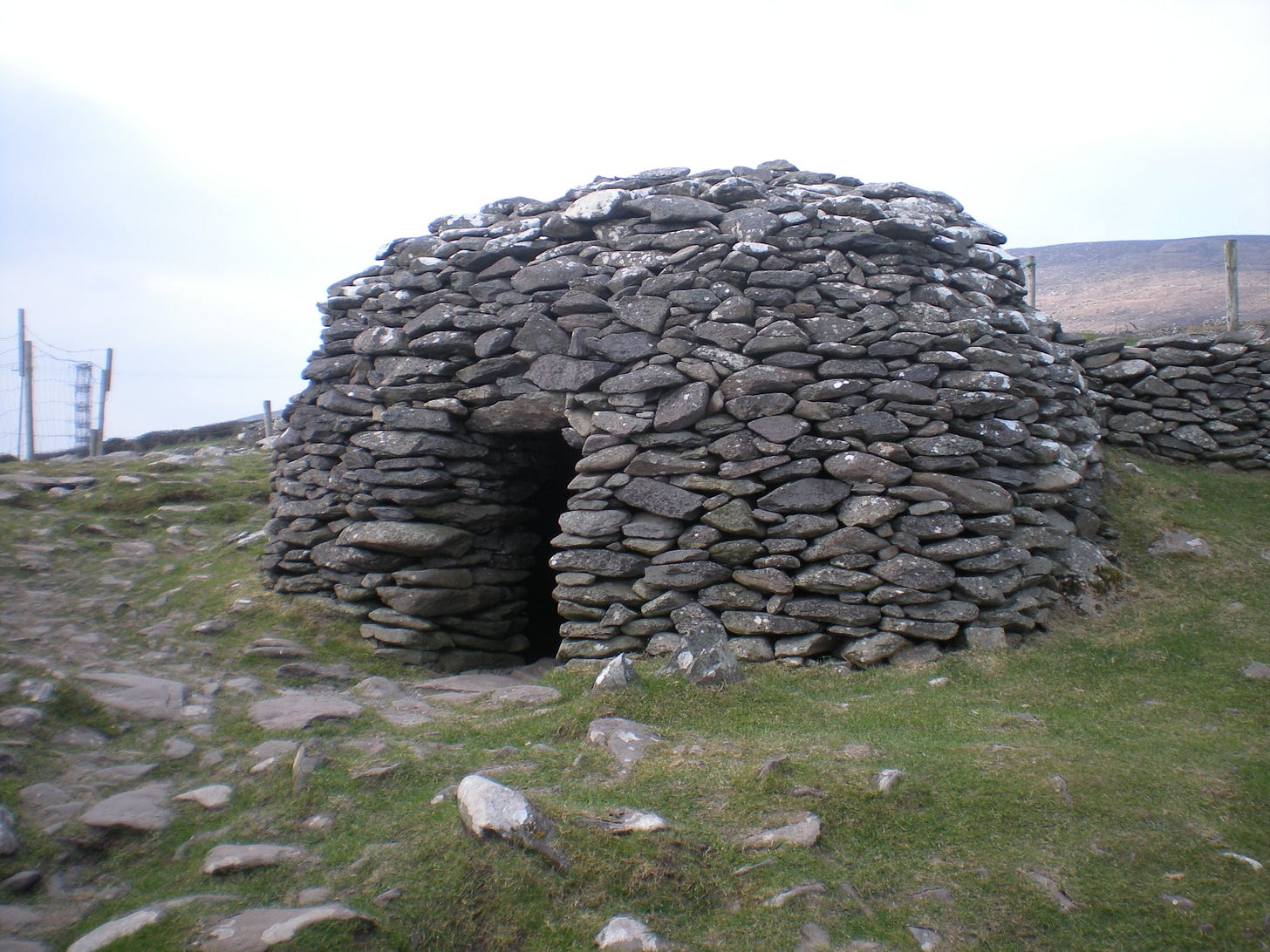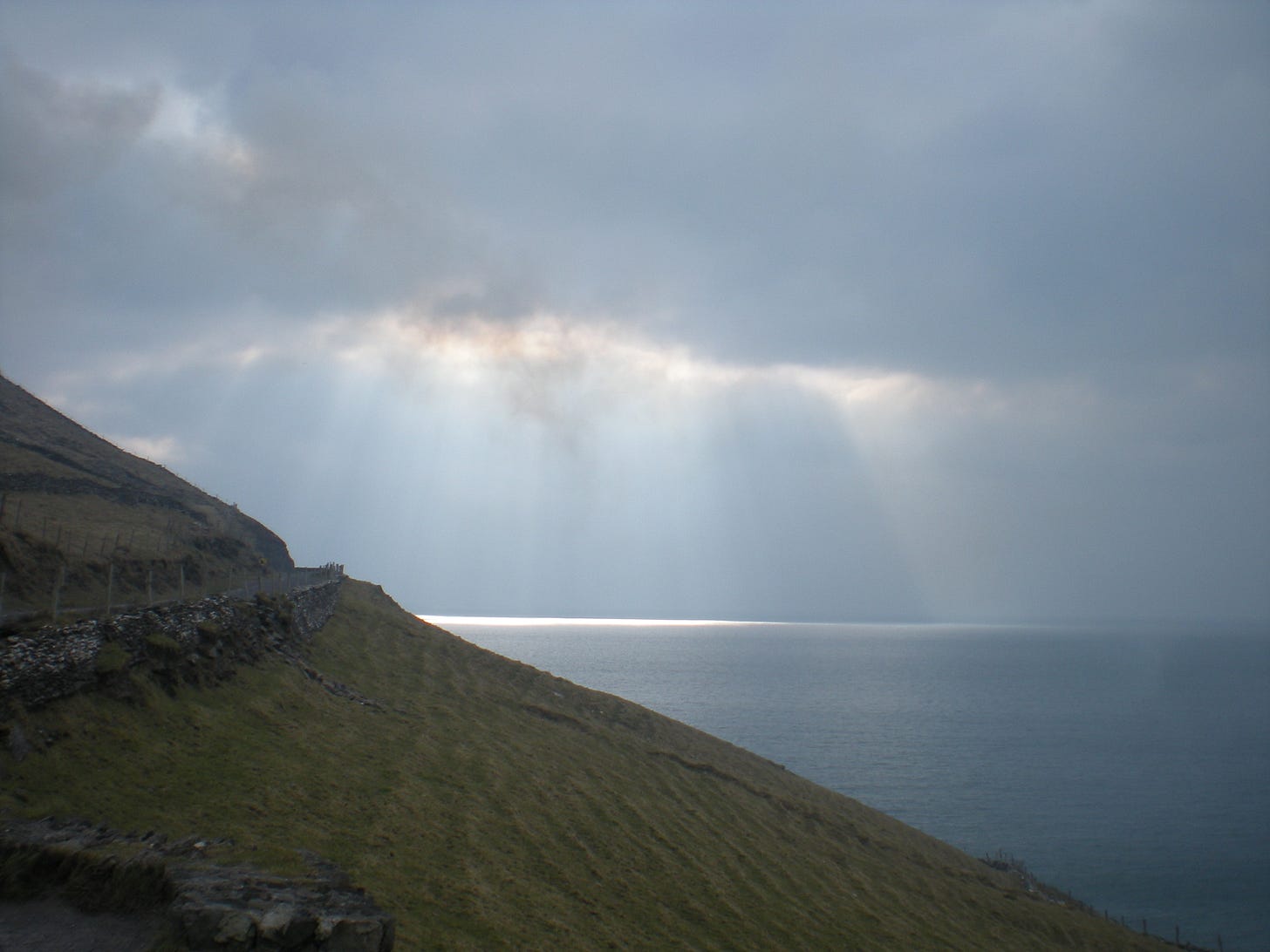My first trip to Ireland takes place just two years after moving to North Carolina, from Oregon. Alone. For a job. You see, until my marriage ended, the longest I’d ever lived by myself was two months. That has made it easy to hyperfocus on empty seats at the table, empty space next to me on a bus, a whole bed to myself. On the other hand, I shower when I damn well please. Cry, with no need to explain.
On this journey of only four days, at stake is the single life I—extrovert to the marrow—have stumbled into. My first full day in Cork is a Sunday, and I board a tour bus to find I am the only solo tourist. I do not know how to do this.
As if it can somehow help, the song “Skating Away on the Thin Ice of a New Day,” by the art/folk rock band Jethro Tull, is running on repeat inside my skull. (Spinning in your emptiness,/if you have to, pray./Looking for a sign, that the universal mind/has written you into the passion play./Skating away, skating away, skating away/on the thin ice of a new day.)
The bus driver/tour guide stops in Killarney, explaining that once the buses from Dublin and Limerick pull in, we’ll rearrange based on the tour we selected: Ring of Kerry, Cliffs of Moher, or Dingle Peninsula.
Killarney is quiet. Blustery, still in the grip of winter. I walk away from the buses and come upon trees full—FULL—of crows. Loud, ominous. Hundreds of crows, black as the bare limbs where they perch, rise and settle down again, as though the wet air stifles their flight. A fog of dread descends upon me and I hurry back the way I came.

Now, mulling over that day a decade later, the crows of Killarney still hold some portent I’ve not understood. Perhaps it was only that, in the opposite direction, I’d find a teashop. Open, warm, and full of books.
On Dingle Peninsula, where Irish Gaelic predominates, time feels compressed. Low, round stone dwellings squat intact, despite being nearly a thousand years old. Near these clochán, or beehive huts, we’re likely to see the roofless walls of houses that were emptied by the 19th century famine of potato blight and England’s enforced export of other, perfectly healthy, crops. Those who could, fled. Alongside those famine houses, later generations built their cozy-looking whitewashed cottages.
We pass cliffs, blooming gorse, and the season’s first lambs. Hedgerows of wild fuchsia are yet brown.
At a farm with the beehive huts up behind its barn, I drop a bill in the box and run around the buildings to cross low stone walls that enclose a few clochán, most of them whole. I scurry inside a low opening while I can still have one all to myself.

In the essays of anthropologist Loren Eisely, he seems to slip easily into communing with the ancients—around campfires, in caves, in the presence of pictographs. This might be my chance. I breathe to quiet and open my mind before another tourist enters.
No tourist enters.
Neither do the ancients.
I am not taken over by something that eludes language, as had happened at the Ring of Brodgar, in Scotland’s Orkney Islands. Those standing stones held my being in whirl and tune outside of time… Here in the clochán, no mystical moment, no one calling me back to the present. Just a bus driver with a light touch on the horn.
Approaching my seat, I scan the other passengers, looking for signs someone wishes they’d also climbed up to the huts. They look content; no evidence that anyone failed to negotiate a mutually agreeable plan. An opportunity that felt heaven-sent to me, and a pee break for everyone else. As we careen down a road barely wider than our little bus, the encircling walls’ mortarless stones and domed roof hold me close.
Through broken clouds, sunshine puddles here and there on the Atlantic waters. Further out to sea, shafts of strong light in great arrays. The sky twilled in heavy cloud and bright patches of blue, threaded with wisps. We move through them all, I think to myself, from the patch we’re in now to the next in turn. This is reassuring in the dark; tempering in the light.

Note: This is an excerpt from a longer work in progress. I welcome any feedback you might be willing to share. Thank you in advance.




The larger essay delves into the solitary experience more, but so far only touches briefly on those incredible dwellings. I’ll look back for missed opportunities. Thank you for the suggestions and encouragement!
Ahh, I just found this little treasure, nestled in some old, soon to be deleted emails!
I've been longing to visit Ireland, and this is a lovely nudge.